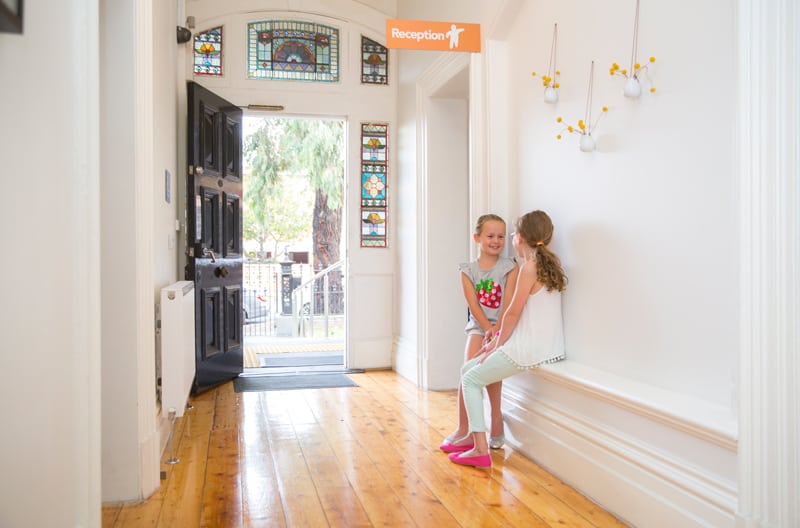Maternal whooping cough (pertussis) vaccine: two for one protection!
A funded whooping cough vaccine was introduced for mothers in each pregnancy in Victoria and Tasmania as of June 1 2015, and even earlier in other states. Whooping cough, or pertussis, has its greatest impact in infants too young to receive adequate protection from the normal early childhood immunisation schedule. This blog is in response to the great interest shown in the program and the many questions from parents, highlighted by a recent post on the RCH Facebook page. I hope you will find the facts you need to have the confidence to get yourself and your children vaccinated. Timely vaccinations help to prevent young infants from getting very sick or dying, and also help to stop the spread of the disease in the community.
I have looked after babies who have been admitted to hospital with severe whooping cough and it is extremely distressing. As most people are aware, four-week-old Perth baby Riley Hughes died of pneumonia from whooping cough in March this year. As a result of this tragic loss, Riley’s parents Greg and Catherine Hughes have campaigned to raise awareness of the importance of having the whooping cough vaccine during pregnancy, and for funds to support pertussis research. They have helped to spread the message about the safety and importance of the vaccine. This weekend, my daughter is organising a bake sale to raise funds for pertussis research. She and her friends were so saddened by the news of baby Riley’s death that they felt they needed to take some positive action to try and help.
So what is whooping cough?
Whooping cough is a respiratory infection caused by a bacterium (Bordetella pertussis) that is spread by coughing, particularly to people in the same household (over 90 per cent of household contacts will catch the disease). People who have whooping cough are able to spread the disease from a couple days before they start displaying symptoms themselves, until about three weeks afterwards. The person who catches the disease usually develops symptoms within about two weeks.
Whooping cough usually starts like a cold, with a runny nose, tiredness, mild fever and a cough. The cough can then develop into uncontrollable bouts of coughing followed, especially in young infants and children, by vomiting and choking, . At the end of the bout of coughing, the child may try to catch their breath by taking a big breath in. This often causes a “whooping“ sound, hence the name of the illness.
Some very young infants, usually those less than four to six months old, can have periods where they stop breathing and turn blue. They may have difficulties feeding and can develop pneumonia; they can have seizures, develop brain damage or die. Infants younger than six months are at the highest risk, and one in 200 infants who contract whooping cough will die.
Of all babies under one-year-old who are admitted to hospital with whooping cough, 85 per cent are younger than six months. This is the reason vaccination in pregnancy has been introduced – to protect infants in the first six months of life. Older children and adults are also at risk, but they may just have the cough with no whoop, which can last for up to three months.
Why is there so much whooping cough in the community?
In 2014 in Victoria, there were 79 infants younger than six months admitted to hospital with whooping cough. This year there have already been about 45 cases, with cases in babies younger than six months increasing. Overall, in all age groups, there have been about 8,500 cases of whooping cough already this year, after nearly 12,000 last year.
Children currently receive five doses of whooping cough vaccine: at two, four and six months, four years and 12-13 years (in year seven of high school). A sixth dose, at 18 months, is being introduced in October this year. We now recommend that infants get their first whooping cough vaccination at six weeks – this results in about eight per cent less cases than if the first dose is given at two months. Only after infants have had three doses of vaccine are they optimally protected, and even then about 15 per cent will still get the infection. The vaccine doesn’t prevent re-infection but it does reduce the severity of the disease.
Adults need a booster at least every 10 years to maintain their protection. If older children and adults get whooping cough, they may pass it to young infants and place them at risk without even being aware of it.
Why has a whooping cough vaccine in pregnancy been introduced?
Because of the risk of severe illness in infants younger than six months, a whooping cough vaccine, Boostrix, has been funded in pregnancy from 28 weeks in every state in Australia. It takes about two weeks for the body to develop a good immune response and to create antibodies to whooping cough, so the best time to have it is between the 28th and 32nd weeks of pregnancy. This allows enough time for the antibodies that the mother makes to be passed to the infant through the placenta so that when the infant is born they already have some protection against the disease. So you see, two for one protection!
Whooping cough vaccination for pregnant women was first introduced in the US in June 2011, in the UK in October 2012, and has now been introduced in at least another 18 counties worldwide. A study in the UK has shown that vaccination in pregnancy is 91 per cent effective in preventing infection in infants under three months of age (see below). Studies in 2014 in both the USA and UK have also shown that the vaccine in pregnancy is safe, with no increased risk of adverse effects in the mother or infant (adverse effects can include maternal or neonatal death, stillbirth, uterine rupture, placental problems, caesarean delivery or low birth weight). The UK study looked at 20,000 pregnant women and the US study looked 26,000 pregnant women who received the whooping cough vaccine, and both concluded that there were no harmful effects to the mother or infant (see below).
What about my partner?
Partners are also funded to have the vaccine from 28 weeks in pregnancy if they have not had a booster in the last 10 years. For mums, the vaccine is available through their GP or in antenatal clinics, either at the hospital or through their obstetrician. If you’re not offered a vaccination, make sure you ask! Early childhood workers who care for kids under four years and all healthcare workers should also ensure their boosters are up to date.
Should I still have the whooping cough vaccine if I missed having it during pregnancy?
Yes! Mothers should get the vaccine as soon after delivery as they can, up until their baby is six months old. Grandparents and other close household contacts should also get the vaccine at least two weeks before they come into contact with a young infant, but it is not funded for them.
How is whooping cough diagnosed and treated?
Whooping cough is diagnosed by taking swabs from the back of the nose and throat. Ask your doctor for the test if you think you or your child may have whooping cough, especially if the cough has been present for two weeks or less. If whooping cough is diagnosed in the first two weeks of the illness, antibiotics can be used to treat it and reduce the spread to others – especially to young infants who are the most vulnerable. Unfortunately, the cough may continue despite treatment but the illness is usually less severe.
If you have any questions or are looking for more information, take a look at the RCH Immunisation Service’s website: www.rch.org.au/immunisation. You can also speak with your doctor, obstetrician or health care professional, or look at the immunisation resources provided by the Department of Health in your state or by Immunise Australia.
The whooping cough vaccine is safe and effective so don’t delay getting it if you are pregnant, and encourage your partner and those around your baby to get it too! Make sure your kids are vaccinated on time and that babies get their first dose of whooping cough vaccine at six weeks.
Suggested further reading:
- Free whooping cough vaccine brochure for parents, Victorian Department of Health:http://bit.ly/1Mhc6gY
- Melbourne Vaccine Education Centre (MVEC): http://bit.ly/1HMUuHO
- Two large safety studies that support whooping cough vaccine in pregnancy:
- Donegan, K et al. Safety of pertussis vaccination in pregnant women in UK: observational study. BMJ. 2014
- Kharbanda EO et al. Evaluation of the Association of Maternal Pertussis Vaccination with Obstetric Events and Birth Outcomes. JAMA. 2014 312(18):1897-1904.
- Effectiveness of the whooping cough vaccine in the UK: Amirthalingham, Lancet, 2014: http://bit.ly/1pfypEz
- Light for Riley: Facebook page set up by Greg and Catherine Hughes.


